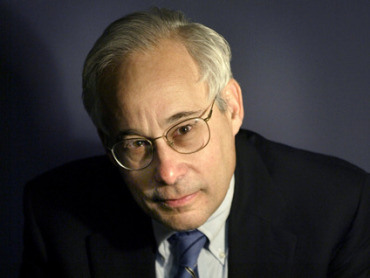William M. Silberg, Senior Fellow & Chair of CHMP Advisory Board. Bill Silberg is a strategic publishing and communications consultant with 30 years experience in health, medicine, health policy and science, in both the professional and consumer sectors.

Dr. Donald Berwick photo credit/cbsnews.com
There was a burst of attention a few weeks back to the predicament of Dr. Donald Berwick, the Harvard pediatrics and public health professor now serving – and, as astonishing as it seems, precariously so – as administrator of the Centers for Medicare and Medicaid Services (CMS).
(Disclosure: I’ve known Dr. Berwick in various professional contexts for many years, particularly in work he did with support from The Commonwealth Fund, where I used to serve as Senior Vice President for Communications and Publishing. And although I wouldn’t presume to be lucky enough to call him a personal friend, I am an unabashed professional admirer).
So why the predicament? After all, if there ever was a visionary with a long track record of pushing our high-tech yet hidebound health care system toward real change, it’s Berwick. And if there ever was a more critical time for someone with Berwick’s clear-eyed zeal for saving both lives and money by making straightforward yet highly effective systematic improvements, based on data rather than the latest flavor-of-the-month notion, it’s now. .
Indeed, based not just on CV but on decades of achievement, including his pioneering life-saving work as founding head of the Institute for Healthcare Improvement, Berwick might well be the most qualified administrator CMS (or its predecessor) has ever had. This is especially so given that the massive Medicare and Medicaid programs are ideal test-beds for getting runaway health costs under control while improving the efficiency and quality of care.
And yet, according to reports by authoritative health policy analysts, including Maggie Mahar, whose Health Care Blog post in early March nicely laid out this nightmare, Berwick’s appointment is in trouble. You see, President Obama named him to the CMS post in a recess appointment, understandably fearing that the Congressional hearings that go with a regular appointment would turn into a circus of posturing and poisonous attacks on the Affordable Care Act, with Berwick as a political piñata.
Senate approval is still needed to keep Berwick on as CMS administrator after his recess appointment expires in December. But a few weeks back, 42 Senators sent Obama a letter demanding he withdraw his support of Berwick to head CMS. Discussions reportedly already are under way as to “what comes next” and which politically acceptable functionary might run CMS post-Berwick.
As some reports have noted, the attacks on Berwick don’t really seem to be about him, even though opponents question whether he has the qualifications to deal with the complex health care financing issues facing CMS. This is simply a specious argument, a ham-handed (but perhaps, from a strategic communications perspective, effective) exercise in spin.
Rather, when you cut through the hyperbole and vitriol, you realize that this is “just business” – a raw political play by those who want to mete out high-profile punishment to Obama over his health reform agenda and block the sort of substantive change the heath care system needs if we’re to avoid it collapsing under its own weight.
There are efforts to save Berwick, as pioneering UCSF hospitalist Robert Wachter, MD, noted in another Health Care blog post, including a letter of support sent to Obama and signed by a number of leading health policy experts. Wachter agrees that this episode isn’t about Berwick per se but about whether politics will trump the critical need for health policy innovation. And so do I.
Of course, we should remember that the US doesn’t have a history of developing health policy through sober, evidence-based discussion and debate. It’s always been highly political, with a heavy dose of pragmatism, expediency, hype and happenstance thrown in for good measure (for those who ever wondered where employment-based health insurance, the original Medicare budget projection and the end-stage renal disease program, among others, came from).
Still, one would hope that this time, of all times, we could finally get it right. As Wachter notes, throwing Berwick “under the bus” would say plenty about what we’ve come to as a nation. It would be a shameful statement, one we should not be making.
William M. Silberg, Senior Fellow & Chair








